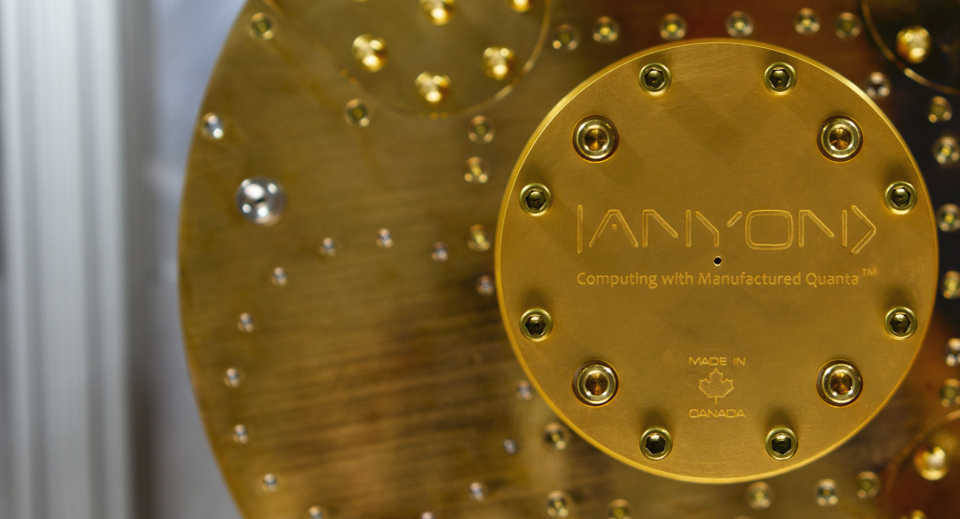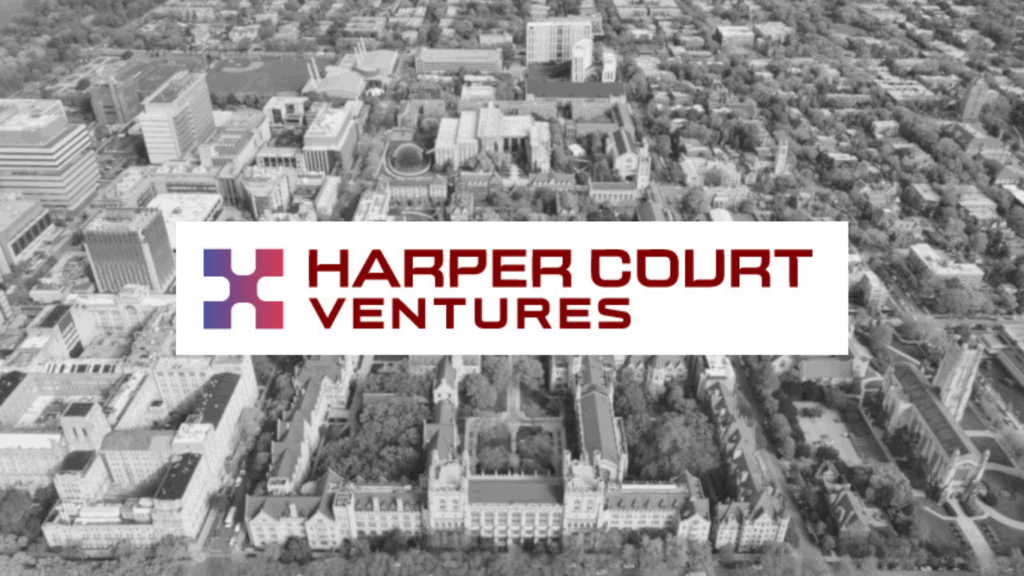You might not have heard about Anyon Systems – yet – but the Canadian-based full-stack hardware quantum computing company is considered an elder member in the quantum industry and its pioneering team has been working quietly and deliberately on building – and importantly – delivering QCs to customers for years.
Anyon Systems, has a deep, interdisciplinary scientific bench, years of successful collaborations with the biggest names in both the technology and, specifically, quantum technology industry and a commitment to move quantum from labs into real-world settings right now.
According to Alireza Yazdi, Anyon Systems co-founder and CEO, the company’s history stretches back to 2015 – years before quantum computing captured regular headlines in the international press – when it introduced its industry-leading software simulation tools for quantum processors. 2015 might not exactly like the long-past, but on the quantum timeline, that places Anyon as one of the oldest companies in the space.
Within a few years, Yazdi said that the small initial team was starting to forge its own path in the emerging quantum industry. They would blaze this trail in a way that would balance physics-powered explorations with engineering-focused discipline and focused on an unrelenting vision to create quantum computers that were practical and useful.

“We have amazing physicists, but we also have amazing engineers,” said Yazdi. “We believe that quantum computing is both a hard physics and a hard engineering challenge and engineering is at the heart of our company DNA.”
Yazdi said that building this physics-driven, engineering-rooted team was critical to tackle error rates, a problem that stands in the way of using ultra-sensitive quantum devices to work on useful calculations in real-world environments.
While often looked at primarily as a software problem, Anyon takes a hardware efficient approach – designing hardware that can create sturdy qubits – to tackle the error problem in quantum.
While many quantum approaches will need many qubits – many millions of physical qubits, in some cases – to produce useful computations, Anyon is focused on producing fewer, but higher quality qubits.
“We believe that we can build a useful quantum computer with a fraction of a million physical qubits,” said Gabriel Ethier-Majcher, Anyon’s quantum hardware team lead.
Full Stack and Vertically Integrated
The hardware efficient approach is just one example of Anyon’s deliberate decision-making. From how it adopted its qubit modality to how it plans to deliver these products to market, careful attention has been paid to almost every facet of the operation.
Early on, the team made the decision to produce vertically integrated quantum computers, making sure they would build proprietary cryogenics and control electronics themselves.
To do that, the company first conducted extensive research that underscored the advantages of the superconducting approach, as well as the drawbacks. Namely, superconducting devices are susceptible to supply chain risks and the limitations of control electronics and cryogenics.
Designing and building custom cryogenic and control electronics systems is no easy task, but the company believes that the investment in this approach will pay off in two important ways.
“The first reason is that by controlling the whole design of the computer, we believe it’s going to help us scale up faster,” said Christian Bassila, Anyon President. “The second reason is it reduces the risk that we could get cut out by some changes in the supply chain”
Already Building – And Selling – Quantum Computers
This ground-up, full-stack philosophy is working. In addition to securing contracts with quantum leaders, such as Google, Anyon has already sold two of their quantum computers – one to the Canadian Department of National Defense and another to a high-performance computing center, Bassila added.
This string of successes may seem surprising to many in the quantum computing community because Anyon has diligently brought their products to market without a lot of self-congratulations. While it hasn’t exactly been a stealth operation, the team has taken a low-key approach to an ecosystem that has become quite chatty about product launches, fundraising and roadmap announcements over the past three or so years.
For Anyon, the strong, silent approach to scaling their business through vertical integration is intentional and underscores the culture of hard-work they are aspiring to nurture.
“We’ve been sweating the details for seven years, you could say,” said Bassila. “We’ve always believed that you need a full system approach to be able to scale up and that’s why we decided to be vertically integrated.”
Quality Feedback Loop
Anyon’s ability to produce high quality – and highly complex – equipment that can scale is also attributed to the company’s desire to create a quality improvement loop between physicists, engineers and, most importantly, customers.
“The challenge for us is: How do you take a proof of concept or an idea from a lab, and then make a product, a practical product for the user?” said Yazdi. “That’s the engineering challenge, but then along the way, you realize many of these things are integrated and an engineering challenge means you have to do some fundamentally different physics.”
The team’s unique makeup also guides moving quantum from the lab to the real world. Some members of the engineering team were part of a successful aircraft simulation startup. It might seem a bit of a stretch from quantum computers to aircraft simulators, but there is a connection.
Aircraft simulators, after all, are large, complex pieces of machinery that need to be configured in such a way that they can be moved into facilities. The Anyon team believes for quantum computers to be used by customers, such as HPC centers, they will need to be portable and fit into the physical operations of a business.
The connection also pays off in better understanding supply chains, the team adds.
As more of these devices move into practical usage, Yazdi expects a new partner – the customer – will join in this virtuous cycle, giving feedback to engineers that offers feedback to physicists, who all, in turn, produce a better, more practical machine.
 Why On-Premise?
Why On-Premise?
It may be that many quantum computing companies are skittish about on-premise quantum computing and, instead, are leaning heavily on offering cloud access because they are grappling with the scalability issues. However, Anyon – with its background in creating portable complex systems — sees advantages with delivering physical quantum devices to business sites. These are advantages that cloud access will not be able to easily remedy, said Alexandra Daoud, vice president of intellectual property and regulatory affairs.
Data security is at the top of the list for reasons organizations want to install quantum computers on premise, she said.
“There are many companies that are not too keen on having their data leave the company, so having their own machine ensures that the data never leaves, which is very important for them,” said Daoud.
The ability to control access – user accessibility – and maintaining data within geographic borders – data sovereignty – are other reasons that companies are considering using on-premise quantum computers.
The Future
All of this puts Anyon in a position to successfully scale its technology and grow its business.
“We view this as an engineering cycle,” said Yazdi. “Once you know how to design these systems, you can design the next version bigger and more powerful as you scale up.”
There are still challenges that Anyon is actually looking forward to facing. More qubits and better qubits, as mentioned, are part of Anyon’s continuous improvement cycle. Designing systems that are fault tolerant, or increasing that fault tolerance, are on the top of list for the company.
“We think that now going forward – where our goal is taking us – is obviously to make more qubits and also better qubits, but we are also always addressing fault tolerance, which we’ve always been focused on from day one,” said Yazdi. “In fact, the name of our company is tied to our commitment to mastering fault tolerance.”
Anyon Systems’s vision for how the company progresses in the future, as you might expect, is not accompanied by fancy roadmaps, sweeping promises or hopeful timelines. It’s a simple commitment to doing the work, working together and constantly improving.
Its vision, itself, is sweeping, though.
“We fundamentally believe that we have an approach where we can have a useful quantum computer using a completely different roadmap,” said Yazdi. “One that does not need a million physical qubits. And, because it doesn’t need a million physical qubits, it means the complexity, the cost and the time to install the system becomes much more manageable.”
If you found this article to be informative, you can explore more current quantum news here, exclusives, interviews, and podcasts.

















